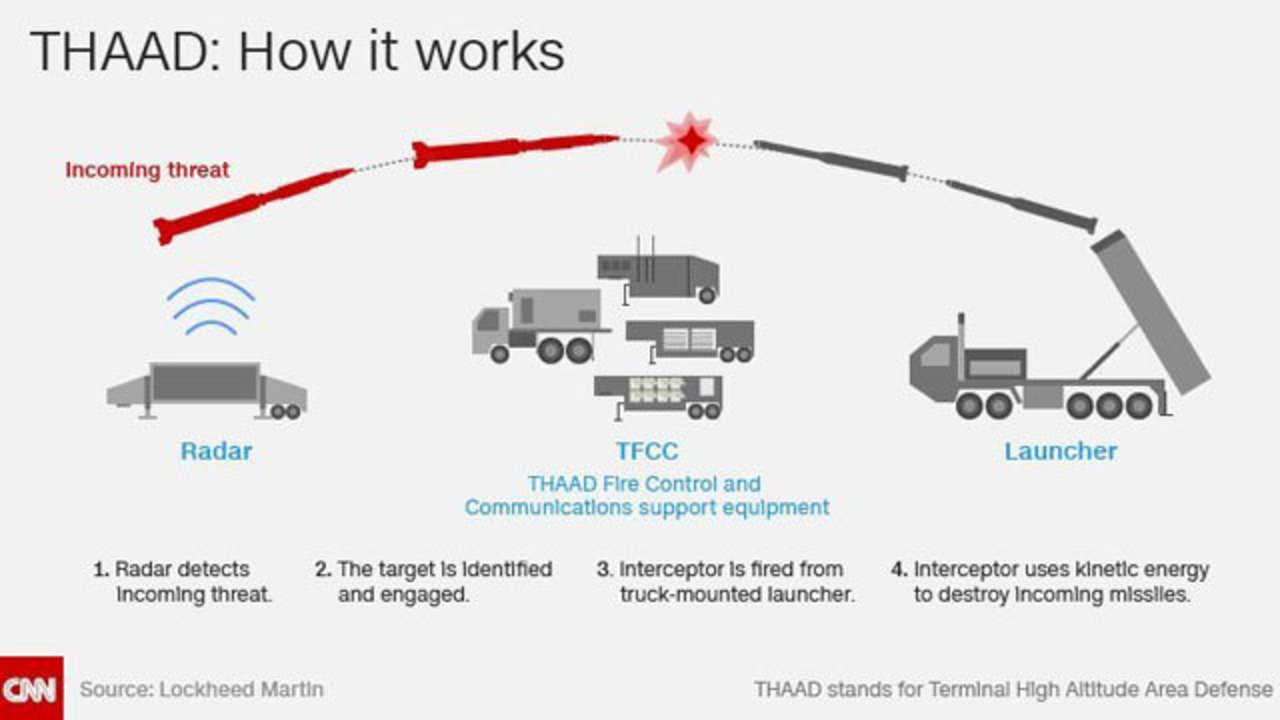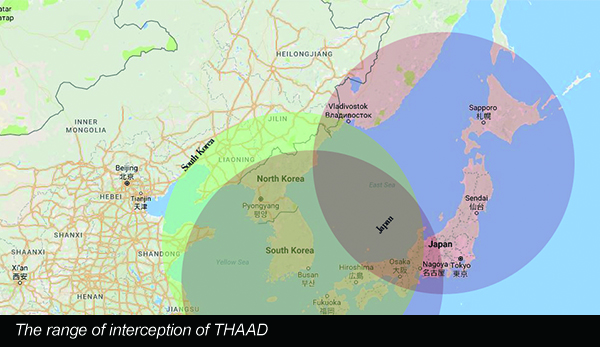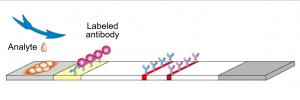 |
To be around any famous places in Seoul, hearing someone speaking Chinese is not uncommon anymore to most citizens in Korea, maybe not only in Korea but also all over the world. We all know what that means-there are a whole lot of Chinese tourists worldwide. It is obvious just by looking around near the University, watching tourists wandering in a line or waiting for their tourist bus. At some other ‘tourist attractions’, like near Dongdaemun, most stores including restaurants and cosmetics shops, put up signboards written in Chinese, and are even touting in Chinese on the street. Every time I pass by those spots, it feels like I’m traveling in China alone.
Nowadays however, I found that there are more Southeast Asian tourists or tourists from other countries than Chinese tourists. Due to the deployment of THAAD on the Korean Peninsula, which was first announced last July, the Chinese government has started to strictly regulate Chinese citizens from travel in Korea through travel agencies, beginning in March. The government had already reduced the fixed number of group tours to South Korea by about 20% from last year. They’re plainly retaliating to the deployment of THAAD, aiming to hurt the Korean Tourism Industry. About 17 million tourists visited South Korea last year, and nearly half were Chinese. This tourist-reducing policy of Chinese government really threatens the Korean Tourism Industry.
THAAD, which stands for Terminal High Altitude Area Defense, is a system which is designed to shoot down short, medium and intermediate ballistic missiles, just the type of weapons North Korea has. THAAD was developed by Lockheed Martin, an American aerospace, defense, security and advanced technologies company, for the U.S. army at first, and it is now used as a global program for a few countries Missile Defense Agencies. Here’s how THAAD works; the radar first detects an incoming threat. When the target is identified, an interceptor is fired from a truck-mounted launcher. Then the interceptor uses kinetic energy; sheer speed to destroy ballistic missiles with hit- to-kill technology. ‘High Altitude’ means attacking a missile at a very high altitude, sometimes above the atmosphere. There are three steps to how a ballistic missile works; it enters the atmosphere, flies to its highest altitude, and then falls down to the ground. ‘Terminal’ stands for the third step, and THAAD is a method of shooting down a missile in the third step. Because it has no warheads on its missiles, instead destroying other projectiles by colliding with them, THAAD is potentially safer, especially for dealing with nuclear missiles, said Yvonne Chiu, an expert on military policy and diplomacy at Hong Kong University.
Is that all THAAD means? I mean, what does it mean to the international situation, not just as a defense system? As THAAD is a missile defense system, everyone will be safer by the deployment of THAAD in their country. Then why is it such a complex issue in the world situation? This is an additional concern about THAAD and why is China angry about it’s deployment in South Korea.
 |
The first time Korea started to discuss about the deployment of THAAD in Korea was in 2013, when the South Korean military asked the Pentagon to provide information about the THAAD system concerning prices and capabilities, as part of efforts to strengthen it’s defenses against North Korean ballistic missiles. In May 2014, the Pentagon reported that they are looking for sites to deploy THAAD batteries in South Korea. Then China, in February 2016, started to show signs of uneasiness about it, concerned that the purpose of the THAAD system was actually to also track missiles launched from China, not just from North Korea. The Chinese government harshly resisted it’s use in South Korea. Finally in July 2016, the U.S. and South Korean military agreed to deploy the THAAD missile defense system in South Korea to track North Korean ballistic missiles and provide a deterrent after all the recent nuclear tests. Seongju, Gyeonsang-bukdo was chosen as the place to deploy the THAAD batteries. The sharp tension between China and South Korea, and the U.S, began at a definite point with the start of 2017. On February 2017, Lotte decided to agreed to a site to locate THAAD, at the Skyhill Seongju Country Club, and soon China announced that they will ‘castigate’ South Korea and will respond in revenge, in an economical way and possibly other ways. Nevertheless THAAD launchers and radar arrived in South Korea on March 6th and 16th. They will be kept at Osan Air Base until June when the system is expected to be prepared. This is where we are now, in early April 2017.
The main reason why China is so sensitive about the issue is that in their view, THAAD would do more than just monitor missiles with the ‘radar’ that THAAD has. As the radar first ‘detects’ an incoming missile, it could also monitor mainland China, which is what they are mainly worried about. Does the deployment of THAAD really affect this situation that much? Of course it can track some Chinese missiles, depending on their launching point. Rod Lyon, a senior analyst of ASPI(Australian Strategic Policy Institute) mentioned this at the recent National Interest: China’s right to believe that THAAD surveillance data could be transferred to other BMD assets protecting the continental United States(CONUS). Indeed, one of THAAD’s missions would be to strengthen U.S. defenses against the possibility of North Korean ballistic missile attacks on CONUS. So it has to be able to transfer data to CONUS-based radars and interceptors. But the United States already has a THAAD battery deployed on Guam, two AN/TPY-2 radars deployed in Japan, space-based assets, plus a range of ship-borne radars and larger land-based radars in other parts of the Pacific theatre. Would a THAAD deployment in South Korea change much? In short, China tends to be alert on the increase of the U.S. military in Asia, whereas the U.S, mentioned THAAD as a purely defensive weapon for the protection of their country.
The issue of THAAD is controversial in South Korea too. Although it has already been decided to be deployed, they are still having a clash of opinions.
The most important reason for supporting THAAD deployment is that it is the best defense system in existence. THAAD has had a 100 percent success rate at the 13 live fire exercises done by the U.S. Army. When the enemy launches a missile, the THAAD radar detects it and intercepts a missile using an infrared sensor, between the altitude of 40 to 150km. If it fails to intercept a missile, then the Patriot Missile System defends against missiles under the altitude of 40km. There will be more chances to protect the country from a launched missile by using THAAD. Also, if the missile is intercepted by a Patriot, it might cause damage on the ground because the interception is done around an altitude of 30km, which can be too close to the ground. THAAD can back up the Patriot Missile System, which is one of the reasons why people are supporting THAAD.
Also, since China is being negative about the deployment of THAAD in Korea, even though What people who oppose the deployment of THAAD worry about most is relations with North Korea. They think the deployment of THAAD might provide a reason for China to maintain a significant presence in North Korea. China will keep that presence to contain the U.S. and the relations between South and North Korea will probably get worse under that situation. Another main reason why people oppose THAAD is the ‘economic sanctions’ that China will start, to stop economic and cultural interchange with South Korea, which could cause a serious economic loss to Korea.
At this point, China already has started to ‘take revenge’ on Korea in several ways. On February 27th, after Lotte decided to offer the place to locate THAAD batteries, China began to pressure Lotte, starting with a check on all Lotte distribution facilities operating in China, around 10 were ordered to be temporarily closed down. Some of the food affiliates of Lotte were informed that they would be dropped from participating in online shopping malls in China. Not only that, the online webpage of Lotte Duty Free Shop was hacked in March, which was alleged to be a DDOS attack from China. On March 6th on Weibo, a Chinese social network service, a video of a violent anti- Lotte demonstration was posted. In the video, workers of shopping centers were holding banners with “Get out of China” written on them, and they used heavy equipment machinery to trample over boxes of beverages and ‘soju’. Not only was it Chinese government, but also some of the public displayed an anti-Korean sentiment.
China also put pressure on ‘hallyu’, the Korean Wave in China. “Goblin”, a famous Korean drama which had gained popularity in China, disappeared on Weibo. Chinese video sites like Youku blocked famous Korean dramas and entertainment programs like ‘Running Man’ from 2017. Also, a Chinese entertainment program named ‘I Am a Singer’, which borrowed its name from the Korean program of the same title, changed its name to just ‘Singer’, erasing the Korean program’s identity connection.
China also put pressure on ‘hallyu’, the Korean Wave in China. “Goblin”, a famous Korean drama which had gained popularity in China, disappeared on Weibo. Chinese video sites like Youku blocked famous Korean dramas and entertainment programs like ‘Running Man’ from 2017. Also, a Chinese entertainment program named ‘I Am a Singer’, which borrowed its name from the Korean program of the same title, changed its name to just ‘Singer’, erasing the Korean program’s identity connection.
Because of all these actions by China, Korea might suffer greatly politically, economically and culturally. It goes without saying that the tourist industry is influenced a lot by China’s revenge. Over 20 cruises from China to Incheon Harbor were canceled since Chinese travel agencies stopped recruiting cruise tourists. At the recent Seoul Fashion Week-where Chinese buyers usually consist of about 60 percent of the 500 buyers, the number of Chinese buyers significantly decreased, which can become fatal to designers and fashion brands. However, some people are not having a negative view of these problems. In March, the number of tourists from overseas decreased by about 11 percent from a year ago. As Chinese tourists account for nearly half of the tourists who come to Korea, the Korean tourist industry was expected to suffer greatly, but ’11 percent’ doesn’t seem like a very big number. According to the Ministry of Culture, Sports and Tourism, the number of Japanese tourists increased 20 percent, the number of tourists from the 6 main countries in Southeast Asia; Taiwan, Thailand, the Philippines, Malaysia, Indonesia, and Singapore, increased by more than 11 percent from a year ago, while Chinese tourists decreased by about 39 percent. To prepare for a future situation like this, the Ministry is going to change their advertising target to other Asian countries. Opening the ‘Korea Festival’ in several countries, with a performance by K-Pop singers, and opening public relations offices for Korean companies, tours, the Pyeongchang 2018 Olympic Winter Games and so on.
 |
THAAD itself didn’t actually do anything, but it already had done.
THAAD, as a defense system, it should work as a shield that protects ourselves, not being manipulated by others around us. In order not to be used by external influences, a wise decisions and policies would be needed from now on, until the future.
Jung Minhee 07alsgml@naver.com
<저작권자 © 홍익대영자신문사, 무단 전재 및 재배포 금지>





